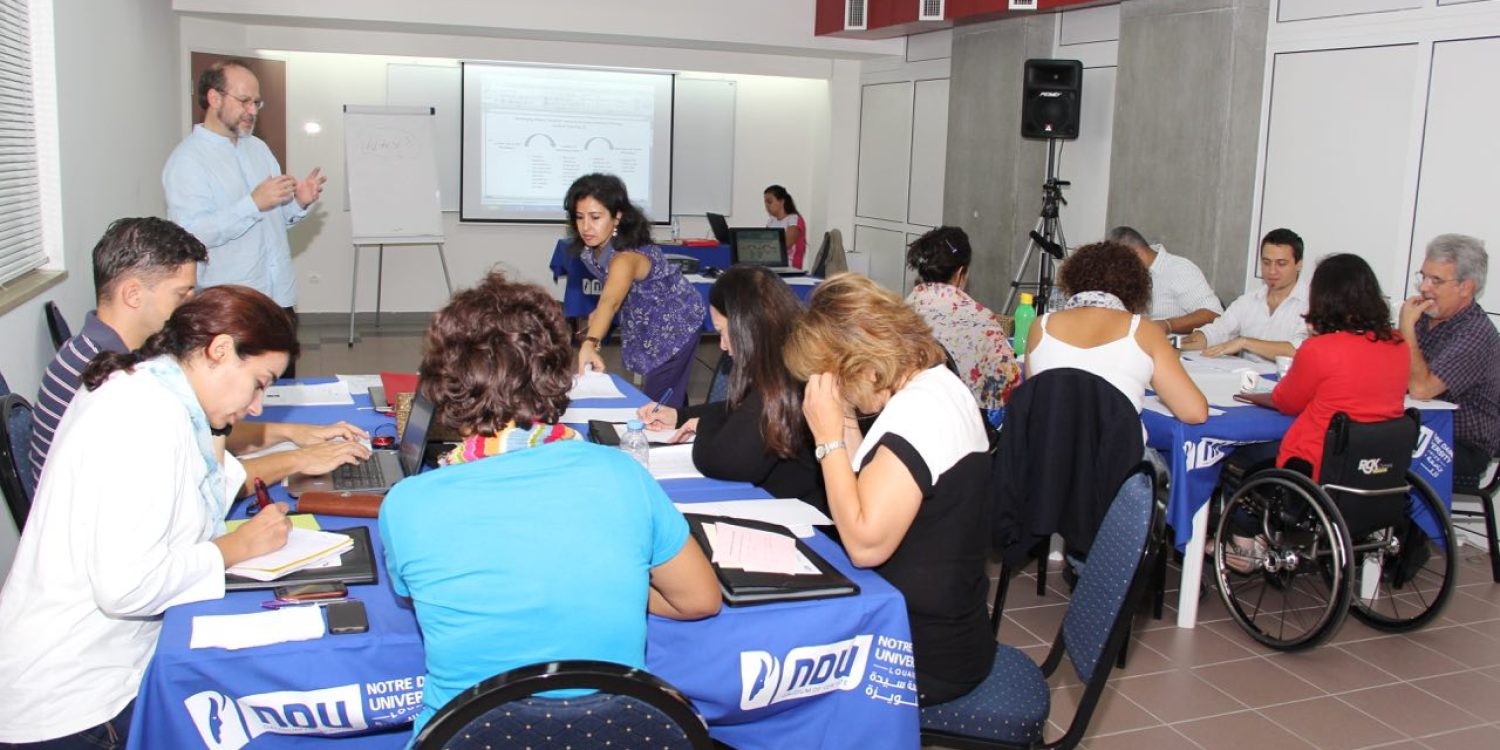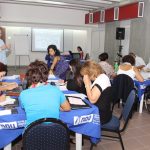November 2014 – September 2015
Within its commitment to support history teachers in Lebanon, the Center for Lebanese Studies, the Lebanese Association for History, Notre-Dame University-Louaize, and Forum for Civil Peace ZFD, with the support of the Embassy of the Kingdom of Netherlands organized an intensive training program that introduced a disciplinary approach to history pedagogy in Lebanon.
The project “Developing Teachers Capacity to Foster Historical Thinking Project” offered an opportunity for a group of history teachers to benefit from an exhaustive training program where they learned new theories and pedagogies for teaching history. Throughout the project, participants were engaged in a series of workshops and mentoring sessions to help them refocus their teaching on historical thinking. Through six two-day workshops, they were exposed to active learning strategies, the use of a multitude of resources, strategies to build democratic classrooms and to processes of rigorous enquiry and debate about the meanings of the past.
The training modules were facilitated by two renowned experts in the field, Arthur Chapman from the Institute of Education, University of London and Christine Counsell from the University of Cambridge who worked closely with experts from the Lebanese Association for History (LAH), Bassel Akar, Maha Shuayb and Nayla Hamadeh. The project also aimed at developing a community of learners by promoting collaboration and peer mentoring amongst the group of teachers thus creating a remarkable collegiality among them.
Chapman and Counsell engaged teachers in higher thinking activities focusing on the concepts of causation, continuity ad change, historical significance, similarities and differences and on historical evidence. With feedback from their colleagues and mentors, teachers designed their own learning activities that they applied with their students at their respective schools. They experienced reflecting on their practice to modify their planning accordingly. The training program started in November 2014 and finished in September 2015.











